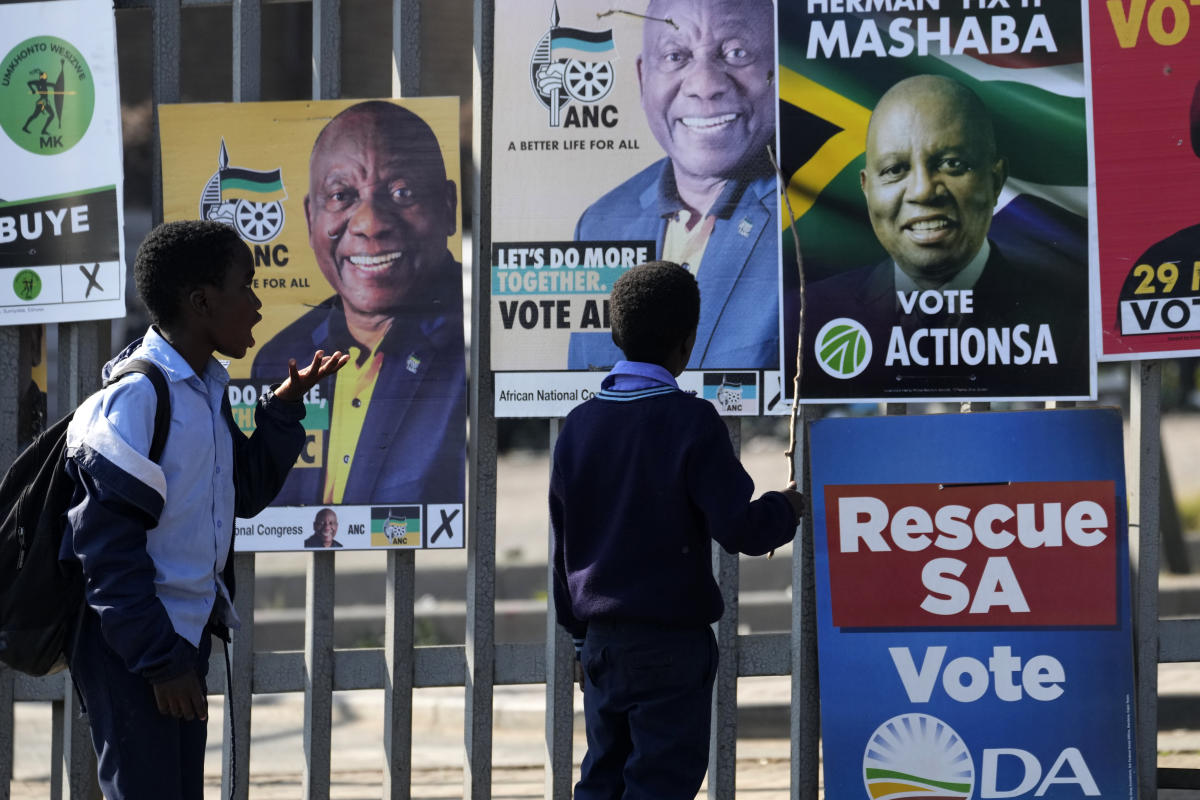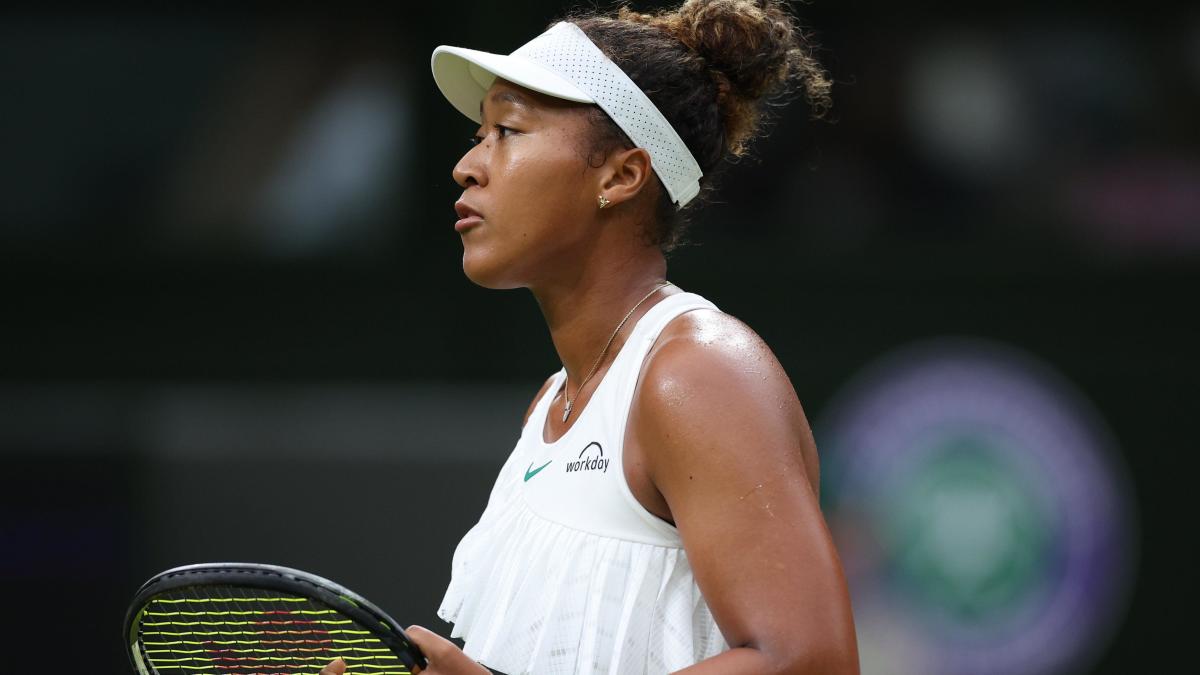CAPE TOWN, South Africa (AP) — South Africans will vote Wednesday in an election seen as their country’s most important in three decades and one that could take their fledgling democracy into uncharted territory.
At stake is the three-decade dominance of the African National Congress party, which led South Africa out of the brutal white minority regime of apartheid in 1994. The party is now the target of a new generation of discontent in a country of 62 million people – half of whom are estimated to live in poverty.
Africa’s most advanced economy faces some of the worst socio-economic problems in the world, including one of the worst unemployment rates at 32%. Some groups say this is undersized.
Persistent inequality, with poverty and unemployment disproportionately affecting the black majority, threatens to dethrone the party that promised to end it by abolishing apartheid under the slogan of a better life for all.
South African President Cyril Ramaphosa, the leader of the ANC, has vowed to ‘do better’. The ANC has asked for more time and patience.
Any change in the ANC’s grip on power could be monumental for South Africa.
After winning six consecutive national elections, several polls have the ANC’s support at less than 50% ahead of this one, an unprecedented decline. It could lose its majority in parliament for the first time, although it is widely expected to take the most seats.
The support is fading. The ANC won 57.5% of the vote in the last national election of 2019, its worst result yet.
If it loses its majority, the ANC will likely face the prospect of having to form a coalition with others to stay in government and retain Ramaphosa as president. An ANC that has to co-govern has never happened before.
“Since I’ve been around – I don’t know, maybe my parents have – but I’ve never seen anything like change,” says 22-year-old Michelle Khamanga, a recent university graduate and one of millions of young people who were not born when apartheid ended and can now vote. They only know South Africa’s current problems.
In her age category, the unemployment rate is a desperate 60%.
The opposition to the ANC is fierce, but fragmented. The two largest opposition parties, the Democratic Alliance and the Economic Freedom Fighters, are not predicted to increase their vote numbers even slightly to overtake the ANC.
Instead, disaffected South Africans are moving to a range of opposition parties; more than 50 will run in the national elections, many of which are new. One of these is led by the previous president of South Africa, who wants revenge on his former ANC colleagues.
Some South Africans will express their dissatisfaction by not showing up because they are tired of unfulfilled promises. “They’re going to say they’re going to build houses for us, they’re going to say everything. But after tomorrow they will forget about us, and then it will take another five years, and then what? So I don’t think I will vote,” said Tawfiqa Daas in Cape Town.
The ANC says it is confident of retaining its majority. Ramaphosa has pointed out that South Africa is a much better country now than it was under apartheid, when black people were not allowed to vote, move freely, have to live in certain areas and were oppressed in every way.
Memories of that era and the decisive vote that ended it in 1994 still define much of everyday South Africa. But fewer people remember it as time goes by.
“This will be the seventh time that South Africans of all races, from all walks of life, from all corners of our country, will vote for national and provincial government,” Ramaphosa said in his final address to the nation before the elections. . “We will reemphasize the fundamental principle … that no government can rightly claim authority unless it is based on the will of the whole people.”
Ramaphosa outlined some of his ANC government’s policies to stimulate the economy, create jobs and expand social support for the poor. The speech sparked angry reactions from opposition parties, who accused him of violating an electoral law that prevents people in public office from using their office to promote a party.
The elections are being held in one day across South Africa’s nine provinces, with almost 28 million people registered to vote at more than 23,000 polling stations. The final results are expected on Sunday.
It will showcase the country’s contrasts, from the economic hub of Johannesburg – billed as Africa’s richest city – to the picturesque tourist city of Cape Town, to the informal settlements of shacks in the suburbs.
Although 80% of South Africans are black, it is a multiracial country with a significant population of white people, people of Indian descent and people from biracial backgrounds. There are 12 official languages.
It is the diversity that Nelson Mandela, South Africa’s first black president, highlighted as a thing of beauty by referring to his country as a “Rainbow Nation.” It is a diversity that, with the rise of many new opposition parties, could now also be reflected in politics.
___
AP video journalist Annie Risemberg in Johannesburg contributed.
___
AP Africa News: https://apnews.com/hub/africa







